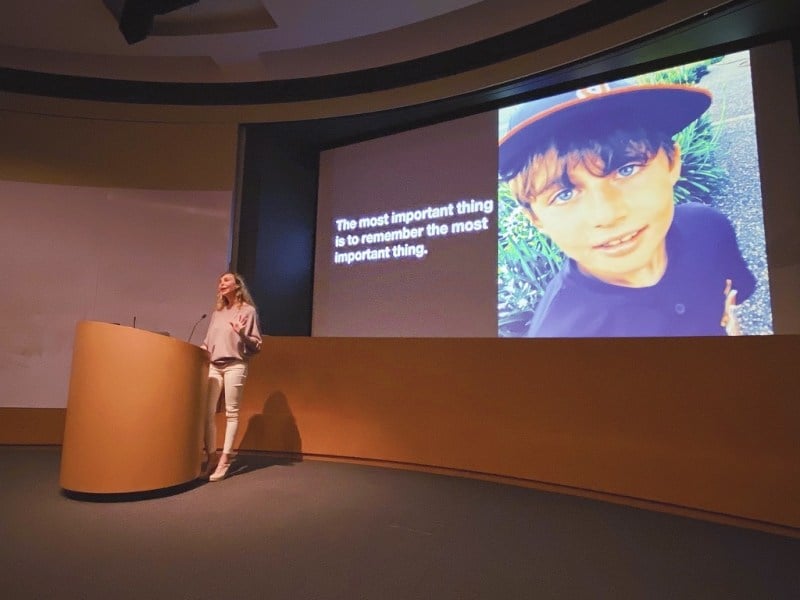Clinical psychologist and author Shauna Shapiro advised students and faculty to find time for mindful practices in their busy schedules and to adopt healthy habits in a compassionate and kind way during a Monday event at Clark Auditorium.
Shapiro is best known for her TEDx talk “The Power of Mindfulness: What You Practice Grows Stronger,” which has more than 1.4 million views on YouTube, and for her book “Good Morning, I Love You: Mindfulness and Self-Compassion Practices to Rewire Your Brain for Calm, Clarity, and Joy.”
Shapiro said the real definition of mindfulness — “the ability to see clearly in the present moment” — has been lost due to the word’s increasingly common usage.
“Mindfulness has gotten so popular that the word barely means anything anymore,” Shapiro said.
Shapiro discussed ways for students to bring mindfulness into their own lives, describing what she sees as the three benefits of mindfulness practices: stronger compassion, ethical decision-making and reduced cultural bias.
“We can’t bring compassion to ourselves unless we first know we are suffering,” Shapiro said.
She also explained her “intention, attention and attitude” model of mindfulness, asking students to identify the goals they want to achieve on their journey (“intention”), to focus on the present (“attention”) and to have positive regard for themselves (“attitude”).
Shapiro quoted a previous mentor who reminded her that “what you practice grows stronger.”
She asked students to practice mindfulness with a kind and positive attitude.
“Mindfulness is not just about paying attention, it is about how we pay attention,” she said.
Shapiro cited research stating that external factors, like winning a lottery or receiving a promotion, do not strongly influence people’s baseline levels of happiness, as truly meaningful changes are internal.
Even simple habits like waking up and saying “Good morning, I love you” to yourself or just saying “Good morning” if “I love you” feels too contrived can improve one’s wellbeing, Shapiro said.
Contact Anastasia Malenko at malenk0 ‘at’ stanford.edu.
